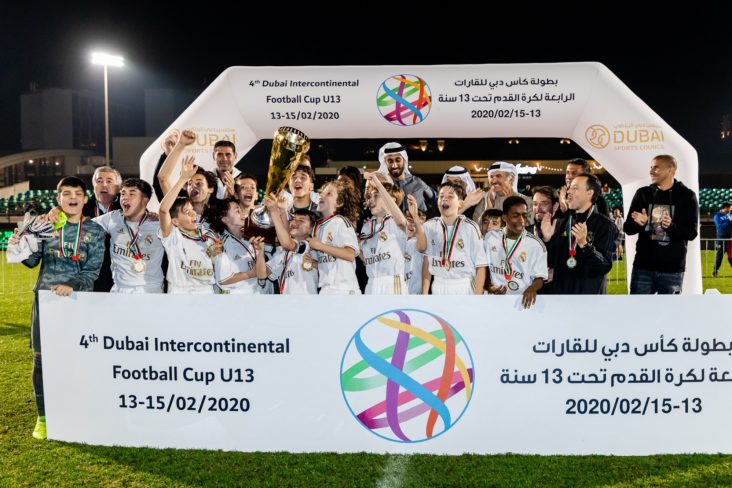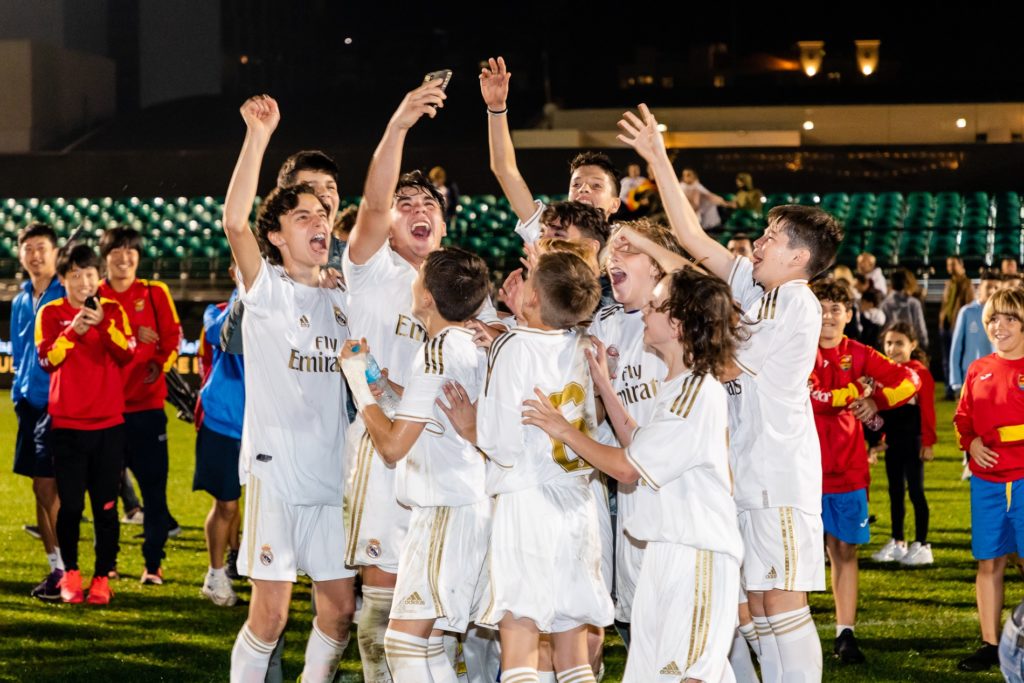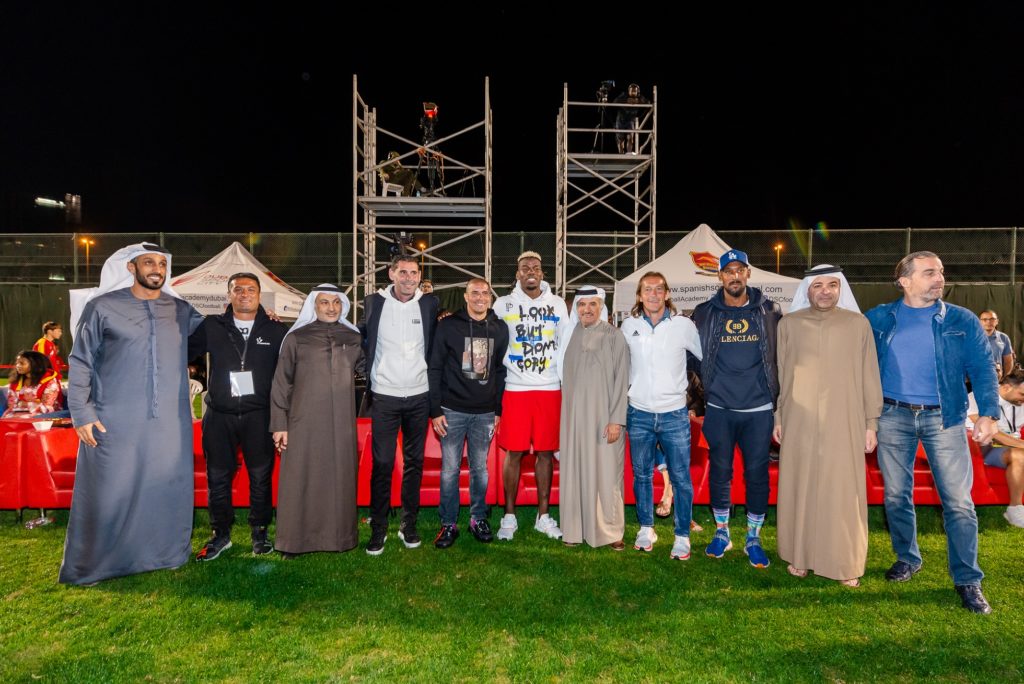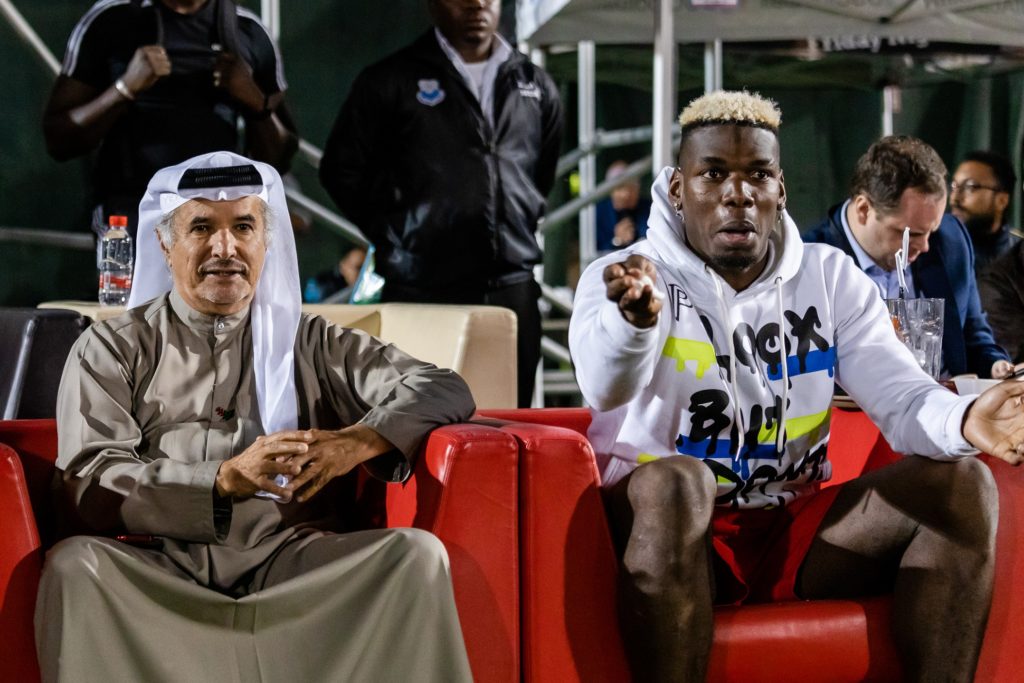Real Madrid Down Inter Milan To Win U13 Dubai Intercontinental Cup Title

Real Madrid edged Inter Milan on penalties in a thriller at Dubai Sports City on Saturday night to win the Gold Cup at the 4th U13 Dubai Intercontinental Football Cup.
Locked 3-3 at the end of regulation time, Real Madrid prevailed in the penalties thanks to the heroics of their goalkeeper, Alvaro Gonzalez, who later picked up the Best Goalkeeper of the Tournament Award. Inter’s Mattia Mosconi was named the Best Player of the Tournament award, while JEF United’s Hara Kiyu finished as the Top Scorer.
In the Silver Cup final, Arsenal FC defeated Japanese team JEF United for the title, while Al Wasl won the Bronze Cup following a 4-3 win on penalties over Al Nasr after a 1-1 stalemate.
The Gold Cup champions were crowned by His Excellency Saeed Hareb, Secretary General of Dubai Sports Council, in the presence of Nasser Aman Al Rahma, Assistant Secretary-General of DSC, Khalid Al Zarouni, President of Dubai Sports City, and Khalfan Belhoul, a member of the UAE Football Association.
Organised under the aegis of Dubai Sports Council, the 4th U13 Dubai Intercontinental Football Cup saw 24 teams from 12 different countries compete for honours, allowing more than 400 young talents to showcase their skills.
France and Manchester United star Paul Pogba was present at the final – alongside former greats like Nicolas Anelka (France, PSG, Arsenal, Real Madrid, Manchester City), Fernando Hierro (Spain, Real Madrid), Mohamed Zidan (Egypt, Borussia Dortmund), and Míchel Salgado (France, Real Madrid) – to encourage and inspire the youngsters.
Applauding Dubai Sports Council for organising this important tournament, Hierro, a former Real Madrid and Spain national team star, said: “Tournaments like these, focussing on really young and raw talents, is good for the future of football. This tournament is an opportunity for players from different parts of the globe, representing different schools of football, to compete against each other.
“Football needed a tournament like this for this age group. This year we saw teams from 12 different countries, representing different cultures, playing styles and academy models, in action. Aside from the obvious benefits of playing against each other, the tournament also serves to break down barriers and create bridges.”
Hierro was also impressed with the Emirati talents he saw at the tournament and said: “I really liked the level of the Emirati teams participating in the tournament and I am sure playing in this tournament will only help them raise their standards further.
“These matches will also serve as a motivation for Emirati players to think about playing in world’s top leagues, and they will work even harder to achieve that dream.”
Former Egyptian star Zidan, who has played in the UAE for Baniyas, shared those sentiments and said: “This tournament is a great investment into the future because it gives future generations of Emirati football stars an early start, giving them a strong foundation for success.
“The tournament gives UAE players a glimpse of the challenges and atmosphere they will face at top international competitions in the future. When we were this age, we did not get such opportunities. I am confident the players will benefit greatly from this experience.”
Being held for the fourth time, this year’s U13 Dubai Intercontinental Football Cup featured teams from European powerhouses Real Madrid, FC Barcelona, Celta Vigo, Bayern Munich, Arsenal, Inter Milan and FC Porto, as well six UAE club teams – Al Nasr, Al Wasl and Shabab Al Ahli of Dubai, Abu Dhabi’s Al Wahda and Al Ain, and Ajman – alongside Pyramids (Egypt), Zed FC (Egypt), Al Fateh (Saudi Arabia), Levante Azzuro (Italy), Muscat Football Academy (Oman), Jef United (Japan), Maldives FA, Wakatake (Japan), CAF Canada, and two teams representing Spanish Soccer School (UAE).
The 24 teams were divided into six groups of four each, and the top two teams from each group progressed to the Round of 16 along with the four best third-placed teams. The eight winners of Round of 16 then moved into the competition for the Gold Cup, while the eight losers played for the Silver Cup and the Bronze Cup.





